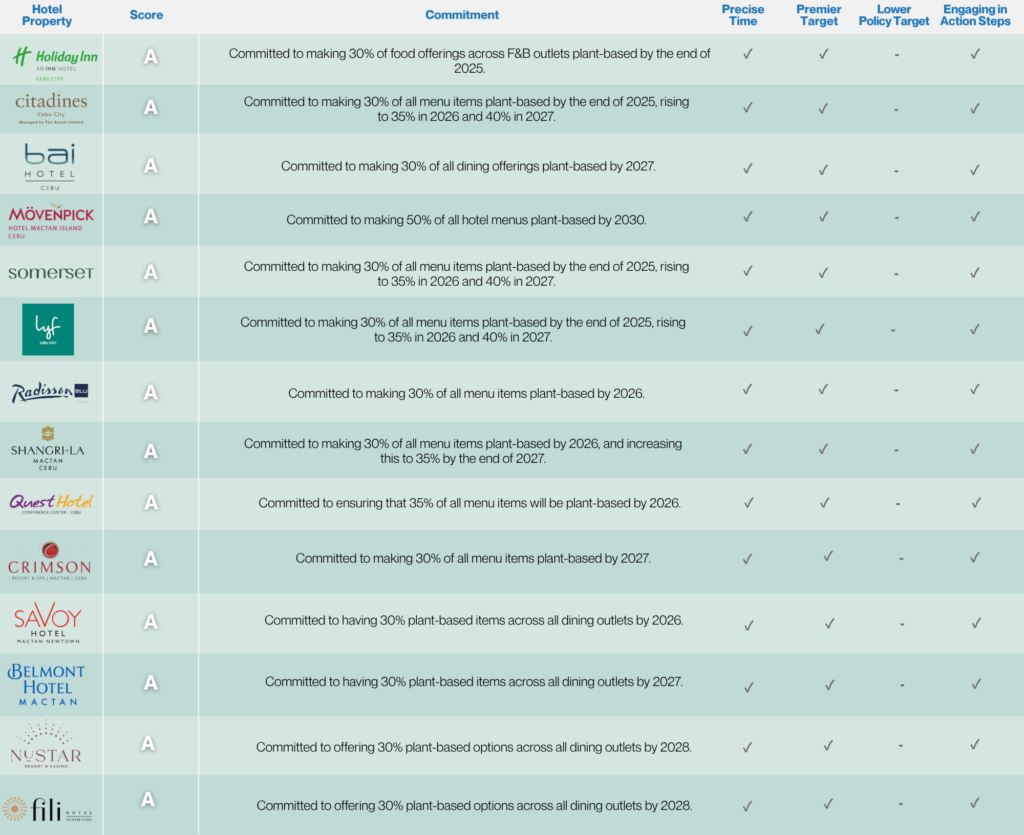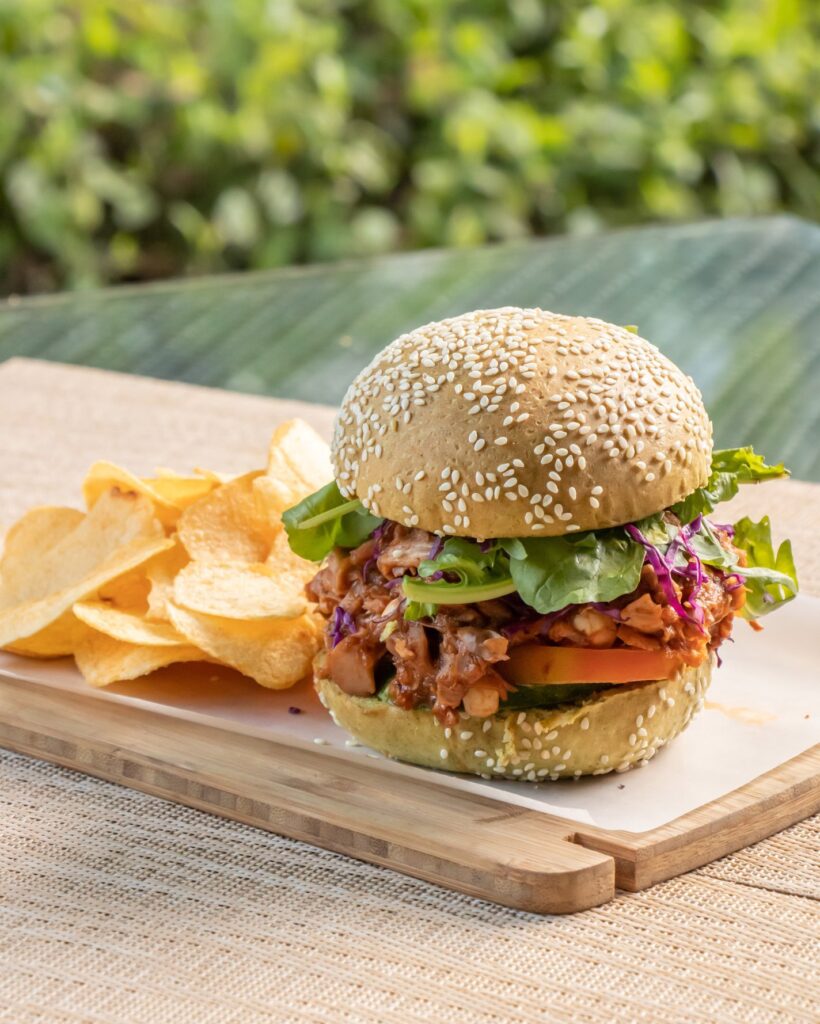
Over a dozen hotels in the Filipino province of Cebu have received an A grade for sustainability after committing to increasing plant-based options on their dining menus.
In May, Ascott Limited became the first hotel group to introduce a plant-based target in the Philippines, working with sustainability NGO Lever Foundation to commit to making 20% of its menu plant-based across its 17 properties by this year.
Since then, a wave of hospitality companies has followed suit. Cebu, a tourism and IT hotspot, is emerging as the industry’s eco leader in the country, with 14 hotels achieving an A grade for sustainability in the non-profit’s plant-based food scorecard for 2025.
These hotels have pledged to make between 30% and 50% of their menus plant-based, starting as early as the end of this year, representing the “most ambitious collective hospitality sustainability pledge” by any province in the country.
“What inspires me most is their willingness to adapt in response to the ever-pressing challenges we face,” said Marielle Lagulay, sustainability programme manager at Lever Foundation, which worked with each hotel to establish these policies.
“They clearly see why this shift is important and why action must be taken now. Cebu is setting a powerful example that will inspire not only the Philippines but the entire Southeast Asian hospitality industry,” she added.
Which Cebu hotels have made the plant-based pledge?

The scorecard highlights hotels that have either adopted group-wide plant-based food policies or individually set property-level targets, with timelines extending through to 2030. An A rating indicates a public commitment to switch at least 30% of meals to be vegan in a defined timeline, and that the company is taking active steps to meet the goal.
Eight hotels have set a 30% target, including Shangri-La Mactan, Radisson Blu, Belmont Hotel Mactan, Bai Hotel, Crimson Resort and Spa Mactan, Nustar Resort and Casino, and Fili Hotel Nustar. Further, Quest Hotel and Conference Center will turn 35% of its menu vegan by 2026.
Meanwhile, five other properties have been recognised for their parent group’s plant-based policies. This includes Citadines, Lyf, and Somerset (all part of Ascott), which have committed to making 30% of their menus plant-based by the end of 2025, rising to 35% by 2026 and 40% by 2027.
Additionally, Holiday Inn is implementing IHG Philippines’s 30% plant-based foods initiative (earmarked for the end of 2025), and Mövenpick Hotel on Mactan Island will align with parent company Accor’s global policy to make at least 50% of hotel menus plant-based or meat-free by 2030.
“Cebu’s hospitality has always been about caring for people and our community, and this commitment extends that care to the environment,” said Quest Hotel general manager Mia Singson-León, who is also the president of the Hotel, Resort & Restaurant Association of Cebu.
“That’s why this collective shift is more than just a tick in the box for all of us. We are serious about expanding sustainable choices that care for both our guests and the planet.”
The Philippines mirrors global sustainability trends in hospitality

The shift towards plant-based menus isn’t just confined to Cebu. IHG’s pledge extends to six properties, including Crowne Plaza Manila Galleria and Holiday Inn & Suites Makati, and Eco Hotels has matched the 30% pledge for all five of its properties. In Manila, Winford Resort & Casino and Okada have also made the 30% commitment.
A quarter of Filipino consumers were looking to reduce their meat intake in 2024. And this year, a Lever Foundation poll found that 83% are looking to increase their consumption of plant-based food, with 91% aware that it is healthier and more sustainable than conventional meat.
In fact, 93% agree that hotels, restaurants and retailers have a responsibility to manage the sustainability and health of their food supply chains, and 85% believe they should sell more plant-based food to support their planetary and public health goals.
The sustainable hospitality transition in the Philippines mirrors a shift in China’s hotel sector too, where 11 companies have committed to making a significant portion of their menus plant-based.
And globally, the World Sustainable Hospitality Alliance has partnered with consultancy Vegan Hospitality to expand plant-based dining solutions and meet evolving sustainability goals across its 35 hotel chain members and their 66,000 properties.
The post These Cebu Hotels Are Leading the Shift to Plant-Based Menus in the Philippines appeared first on Green Queen.
This post was originally published on Green Queen.